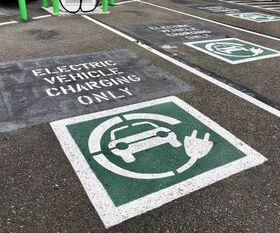Study: 25% EV adoption would save US $17B annually from avoided climate change & pollution damages
Green Car Congress
AUGUST 18, 2020
A new study led by researchers from Northwestern University projects that if electric vehicles replaced 25% of combustion engine cars currently on the road, the United States would save approximately $17 billion annually by avoiding damages from climate change and air pollution.

























Let's personalize your content